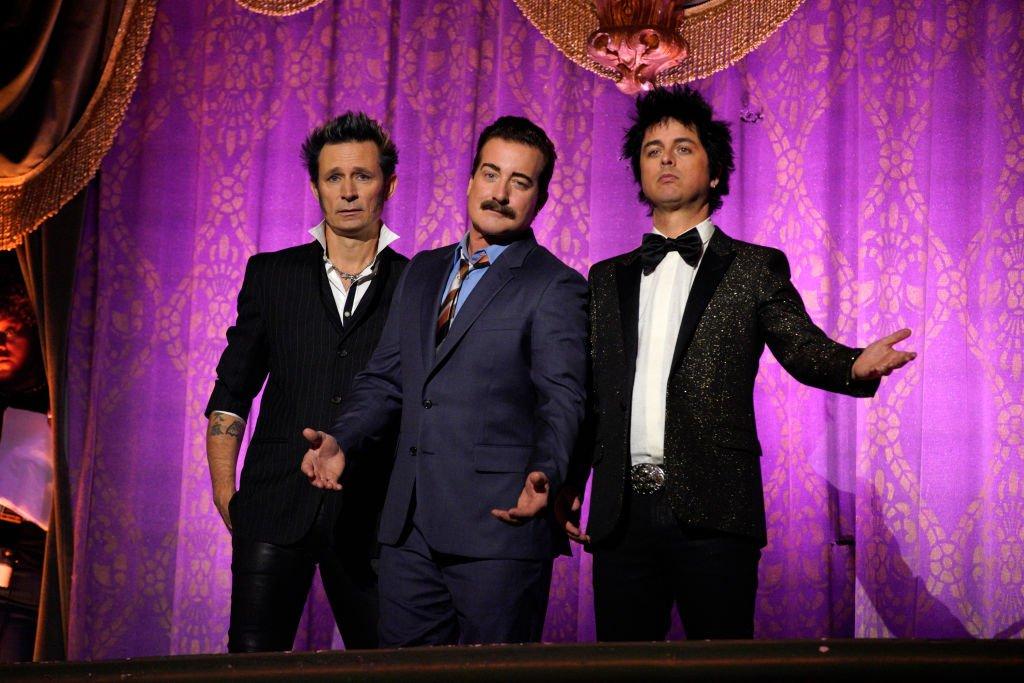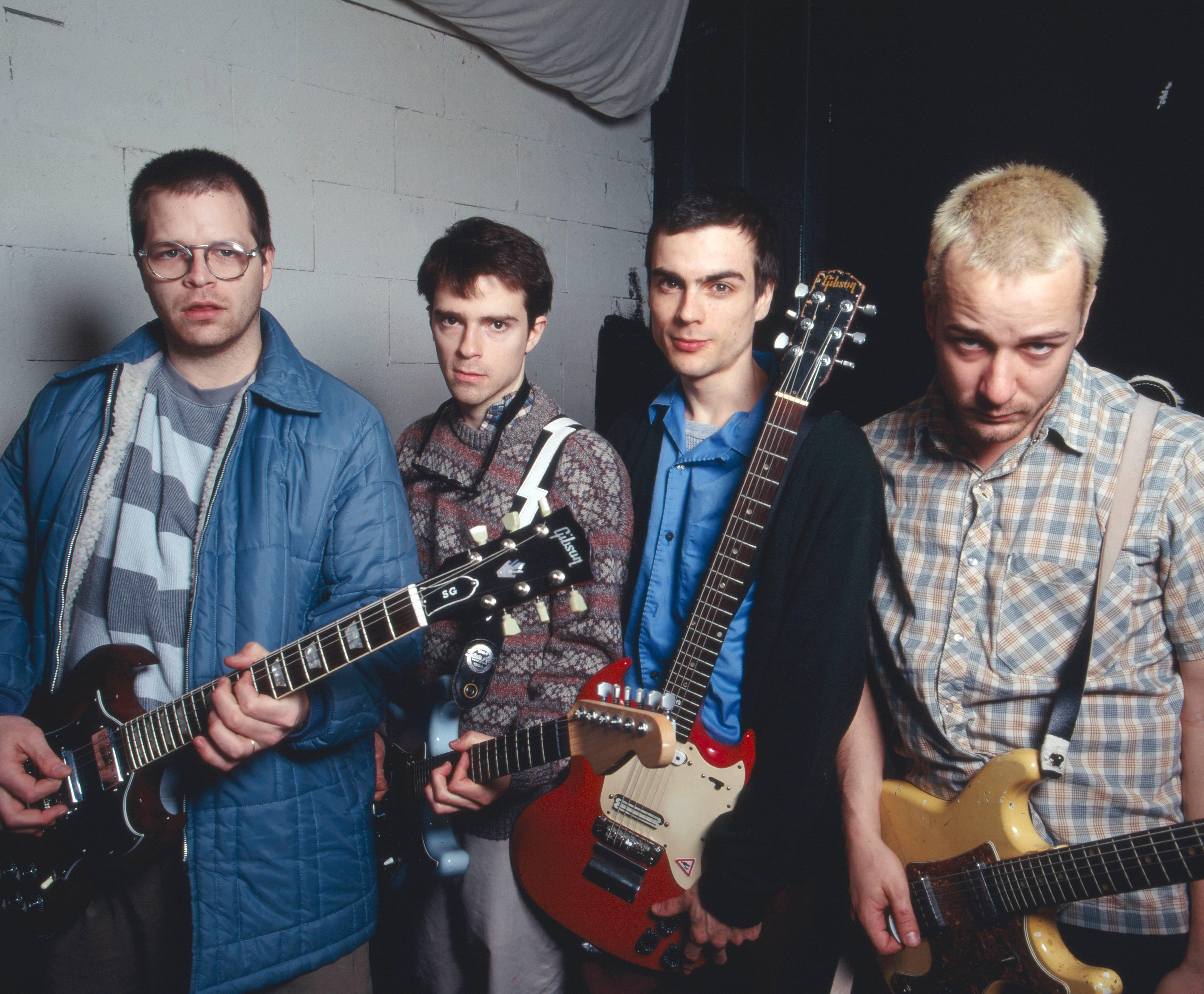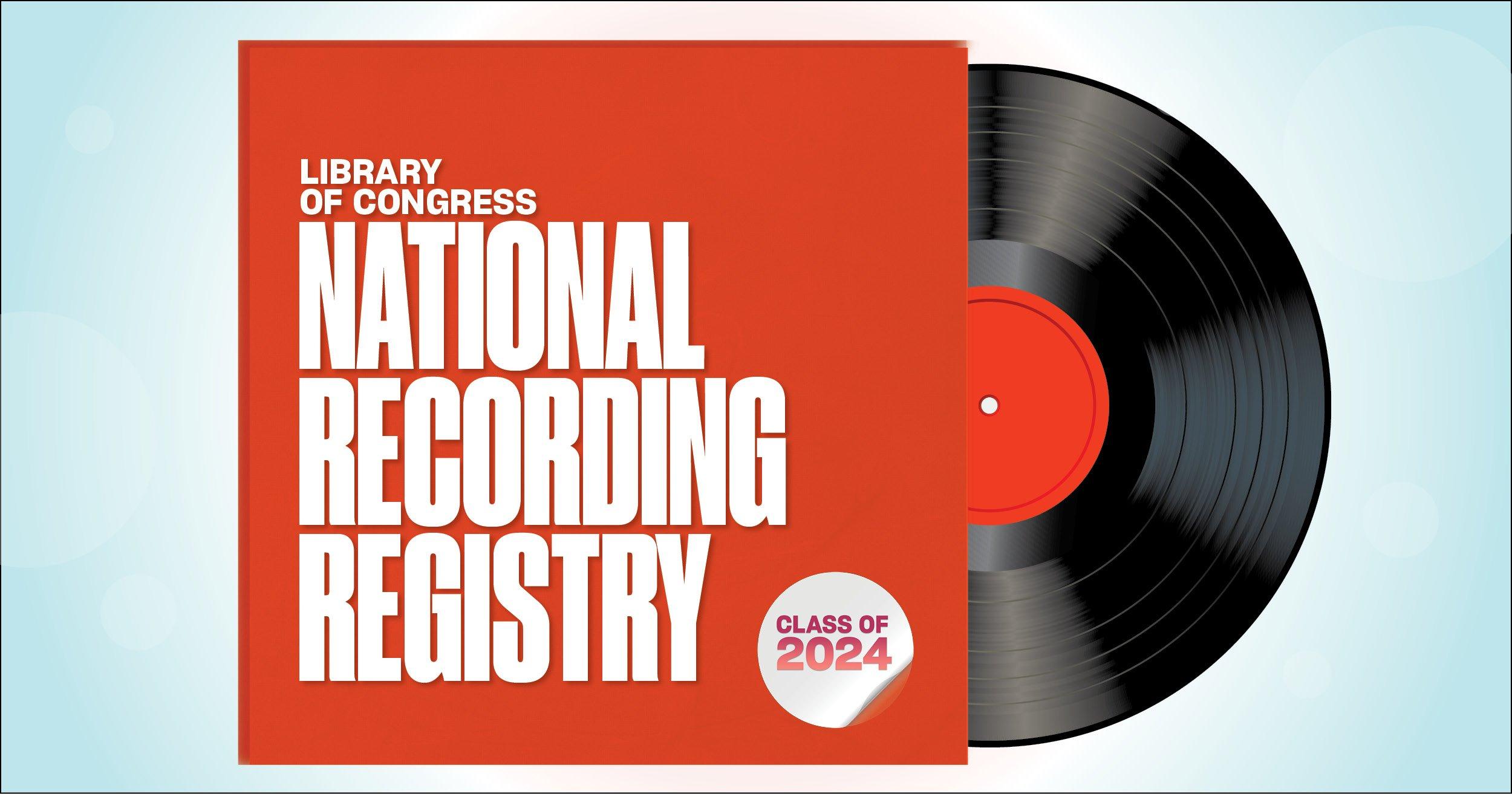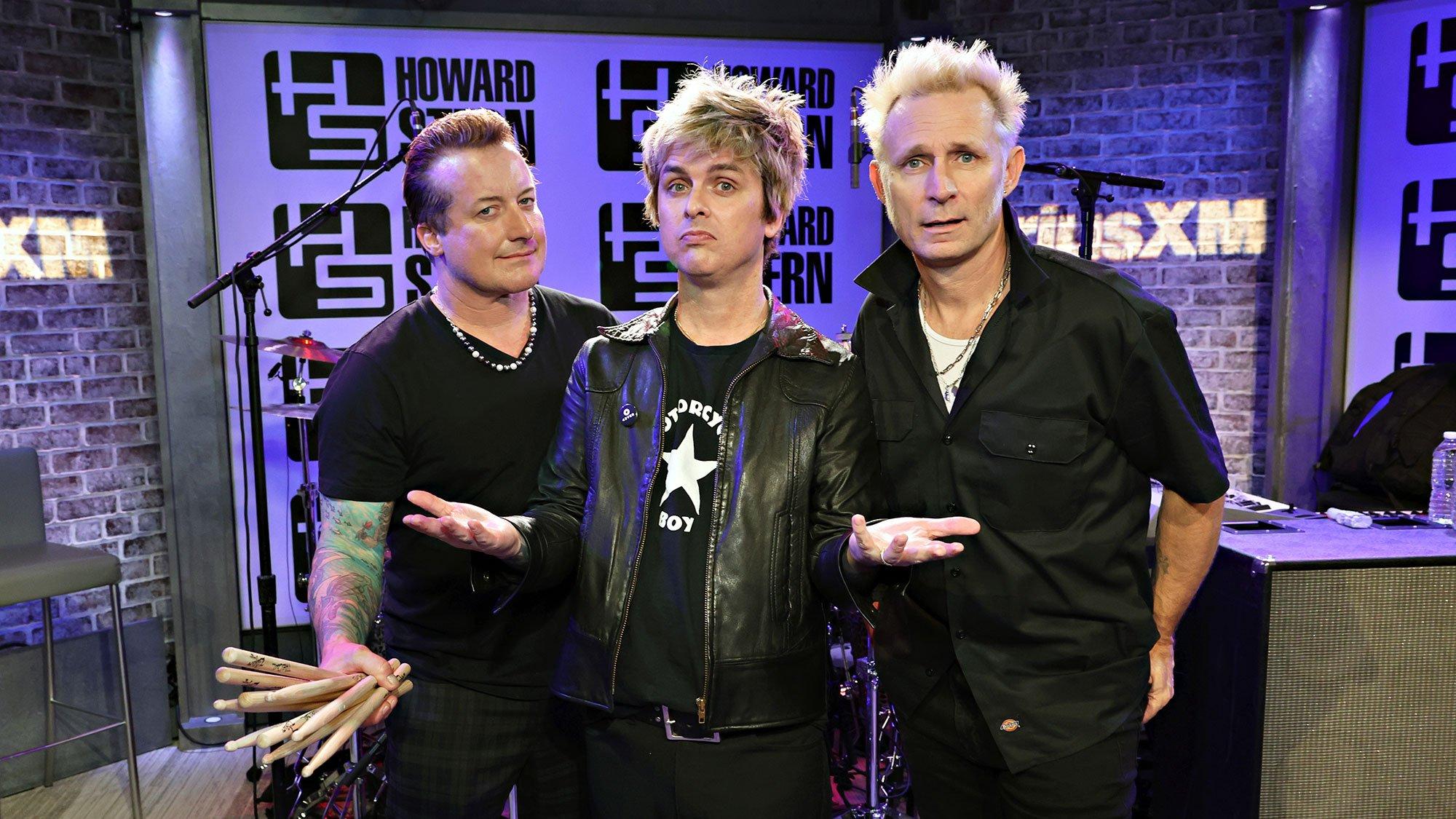Photo: Rick Rowell/ABC via Getty Images

Green Day
news
Hella Mega North American Tour With Green Day, Weezer And Fall Out Boy Postponed
The bands said they would announce rescheduled dates for 2021 soon
Green Day, Weezer and Fall Out Boy have postponed their joint '80s and '90s arena rock-inspired tour throughout North America, citing safety as a concern as the COVID-19 pandemic continues.
The Hella Mega U.S. dates were to kick-off on July 17 in Seattle's T-Mobile Park and closeout on Aug. 29 in Philadelphia. The tour was to feature ska-punk band The Interrupters as special guests. Rescheduled dates will be for summer 2021, they announced on Tuesday, May 19.
"Hopefully this doesn't come as a surprise, but as much as we were all looking forward to seeing you all this summer, everyone's safety is our highest priority so we've officially made the call to reschedule all North American dates of the Hella Mega tour until next year," the bands said in a statement.
They asked fans to hold on to their tickets as they would announce new dates with the same venues in the near future. Dates for the European leg of the tour were postponed on April 23.
The bands announced the massive tour in late 2019. Green Day frontman Billie Joe Armstrong said they came up with the idea of reliving the Van Halen, Metallica and Aerosmith show era during an interview with Zane Lowe, in which he was also joined by Fall Out Boy's Pete Wentz and Weezer vocalist Rivers Cuomo.
"We talked about how we weren't really wanting to do stadiums and [instead] do something that was like throwback to the Monsters of Rock Tour," Armstrong said.
Wentz added: "I remember in the 1990s there was this one summer, and Guns N' Roses [and] Metallica went on the stadium tour and my parents didn't let me go to it… I feel trapped in that forever and we wanted to recreate that memory."
Serj Tankian Talks 'Fuktronic,' Working With Jimmy Urine & Pushing Boundaries In Every Direction

Photo: Fryderyk Gabowicz/picture alliance via Getty Images
list
Why Weezer's 'The Blue Album' Is One Of The Most Influential '90s Indie Pop Debuts
Weezer’s debut album was a harbinger of nerd rock and its many acolytes, with hits like "Buddy Holly" and "Undone (The Sweater Song)." Thirty years after its release, 'The Blue Album' stands tall for the ways it redefined indie pop and rock.
We can thank Kurt Cobain and Tower Records for one of the most enduring debut albums of all time.
Weezer frontman Rivers Cuomo was working at a Los Angeles Tower Records in 1991 when the store began to blare Nirvana’s "Sliver." His ears perked up, inspired by Cobain’s music and lyrics.
"It’s like, 'Oh, my God. This is so beautiful to me. And I identify with it so much.' Hearing him sing about Mom and Dad and Grandpa Joe, these personal family issues, in a really heartbreaking kind of innocent, childlike way, over these straightforward chords in a major key," Cuomo told Rolling Stone.
Fast forward to May 10, 1994, and Weezer —originally a nickname Cuomo took on due to his asthma-induced wheezing — debuted an album brimming with thoughtful themes, chunky riffs, sublime solos and a song that would end up as a game-changing music video directed by Spike Jonze.
Cuomo cut his headbanger hair — he thought metal would be his future — and adorned thick glasses reminiscent of Cobain. Along for the ride came drummer Patrick Wilson, guitarist Brian Bell and bassist Matt Sharp. The cover art for The Blue Album featuring the foursome simply standing and staring at the camera evoked a feeling of awkward geekiness that would eventually lead to the album’s designation as being the harbinger of nerd rock and its many acolytes.
From the time of its release and through to today, The Blue Album reverberated with both music fans and indie rock bands. It felt like a lovechild between the Beach Boys' melodies and the Pixies’ distortion-friendly rhythms. It was certified platinum in January 1995, and has since gone three times multi-platinum in the U.S. Rolling Stone readers ranked the album the 21st greatest of all time.
In honor of an album that arguably has a banger for every track, here’s a deep dive into what makes The Blue Album such an iconic indie pop record, and how its impact on modern rock is still being felt today.
It Has More Hooks Than A Walk-In Closet
Refreshingly original pop-rock wasn’t sprouting up in the mid-1990s, when Nirvana, Pearl Jam and Smashing Pumpkins dominated the radio waves. Enter The Blue Album with songs, such as "Say It Ain’t So," boasting catchy hooks so infectious they became earworm fodder.
It’s not just the big singles blasting addictive hooks. "Surf Wax America" lets Weezer fans ply their falsetto skills when they try to reach the end note in, "You take your car to work/I’ll take my board/and when you’re out of fuel/I’m still afloat."
Tokyo Police Club's Graham Wright said in 2019: "That [album] has such an unfair amount of hooks packed into it. Like, every song has like 5 to 10 hooks that are good enough to easily sustain an entire song in their own. It feels like they hogged everything."
TPC toured with Weezer in 2008.
…And Its Lyrics Were More Than Just Playful
Cobain wrote about drugs, Metallica’s lyrics skewed dark, and some fans couldn’t even make out what Eddie Vedder was crooning into the mic. But Cuomo’s lyrics had that everyman quality fans could find relatable.
Album opener "My Name is Jonas" speaks of a common crisis Cuomo was inspired to put to paper: Cuomo’s brother was dealing with insurance challenges after enduring a serious car crash. Knowing Cuomo’s MO, the song's lyrics resonate more deeply: "Tell me what to do/Now the tank is dry/Now this wheel is flat."
On "Say It Ain’t So" — the most-streamed song from the album on Spotify — Weezer manages an eternal hookiness with a heavy dose of reality. Over a reggae-influenced beat with guitar upstrokes, the song offers a potent look at Cuomo’s past. It tells the story of his estranged relationship with his alcoholic father ("Somebody's Heine/Is crowding my icebox") and how Rivers Sr. eventually left the family, got sober and became a preacher ("You've cleaned up, found Jesus/Things are good, or so I hear").
The Blue Album Had A Singular Look
If there is any moment to showcase how Weezer set itself apart from other rock bands at the time, look no further than the music video to one of the album’s blazing hits. "Buddy Holly" might have been a reference to the close-cropped hair and wide-rim glasses both Holly and Cuomo wore, but the video is a taste of the band’s nostalgia-heavy, pop culture-referencing personality that other bands would later emulate.
Directed by Spike Jonze (who was also responsible for the Beastie Boys' astounding "Sabotage" video,) "Buddy Holly" featured Weezer playing in 1950s garb as they interacted with characters from the show "Happy Days." The video was a marvel of editing and jokiness at the time: Mary Tyler Moore gets a shout-out; there’s something so deeply satisfying seeing the Fonz dance to Weezer verses and fuzz guitars.
"Buddy Holly" was an early example of Weezer's unique and deeply referential aesthetic; their free-spirited, random and weird viewpoint would appear in videos throughout their run. In "Undone (The Sweater Song)," a parade of canines runaround the band as they exuberantly play the hit song, with drummer Patrick Wilson shaking booty behind the kit.
Post- Blue, the Muppets danced and sang along with the band in the hilarious "Keep Fishin’," while sumo wrestlers battled it out between clips of the band rocking out to "Hash Pipe."
It Delivered Memorable And Inspiring Intros
Producer Ric Ocasek ensured that there were no wasted moments in The Blue Album. That includes the intros, which can feature some of the best opening licks to ever grace a Weezer track (as on "Holiday") or flirt with a genre–rock folk– that quickly switches to another (see "My Name is Jonas").
But a true-stand out intro, if only for its experimental personality, comes from "Undone (The Sweater Song)," which opens with a circular riff stemming from guitar picking. Then comes a music-less intro with a couple guys chatting — courtesy of bassist Sharp and friend of the band Karl Koch — that isn’t as meaningful as the song’s more maudlin theme. It may inspire fans to see the song as a fun and silly tune instead of what Cuomo intended: an anthem of the underdog.
That intro is mirrored in other pop-rock tracks of that era, such as Nada Surf’s "Popular" which begins with over a minute of spoken word before the verses.
The spoken intro to "Undone" is a reminder that Weezer never likes taking itself too seriously. They enjoy breaking conventional rules of what a song, or first few bars, should sound like for their audience, and they revel in throwing us curveballs as a way to say, "Hey, we’re a rock band, but we’re not your Dad’s rock band."
They Aren’t Afraid To Move Away From Traditional Indie Pop
"We're experimenting, trying to come up with the best music we possibly can, so our motivation is pure. We're not just trying to cash in," Cuomo told Guitar World in 2002, reflecting his anti-frontman persona with an honest take of Weezer’s standing in the rock world. That "best music" is shining on The Blue Album but also their inventiveness, which saw them extend the usual track length on "Only in Dreams" from the usual three minutes to almost eight minutes.
Moving away from the head-boppin choruses of "Buddy Holly" and "Surf Wax America", the final track on the album plays with rhythms and unadorned bass lines reminiscent of early Phish. It careens from dreamy and meandering to chewy distortion and crashing cymbals, and ends with four minutes of instrumental jamming.
Wavves bassist Stephen Pope took to "Only in Dreams" right away. "[It] stands out to me, as a not-very-technically-skilled bass player, because of how memorable the bassline is even though it’s so simple. It’s extremely Kim Deal-esque, and I attribute a lot of my playing style to Kim Deal and Matt Sharp," he told Consequence of Sound.
Bands Love Covering The Blue Album
Everyone loves to try their hand at belting out Weezer songs, especially those from The Blue Album. One of the more notable covers is the pitch-perfectly sung "My Name is Jonas" from Taking Back Sunday, whose own tunes have Weezer-esque personalities.
Foster the People covered "Say It Ain’t So" in 2011, Relient K cleaned up the distortion for their version of "Surf Wax America," and Mac DeMarco delivered a throaty take on "Undone (The Sweater Song)" where he adlibbed the tune’s spoken word bits.
And if there’s any sign of the album’s wide-ranging influence, the cast of "Succession" recorded a raucous rendition of "Say It Ain’t So."
The Blue Album Is So Iconic That Weezer Is Touring It Globally
From Atlanta to London to Vancouver, Weezer’s 2024 tour schedule is solely focused on playing The Blue Album from start to finish. Titled Voyage to the Blue Planet and featuring openers the Flaming Lips, the Smashing Pumpkins and Dinosaur Jr., the tour will be a retrospective of the killer tracks that cemented Weezer as pioneers of nerd-rock and a whimsical sorely needed during the super-serious era of grunge.
As much as Weezer fans also adore the emo classic Pinkerton and admire the ambition of the four-album box set of SZNS of 2021, The Blue Album remains a perfect debut record and one that transcends any age demo. A 50-year-old rock fan and a 25-year-old TikTok influencer will both be front row centre at the tour this year, and expect them to be mouthing the lyrics to "Buddy Holly" while playing the meanest air guitar.

Photo: Library of Congress
news
National Recording Registry Inducts Music From The Notorious B.I.G., Green Day, Blondie, The Chicks, & More
Recordings by the Cars, Bill Withers, Lily Tomlin, Doug E. Fresh and Slick Rick, and the all-Black 369th U.S. Infantry Band after World War I are also among the 25 selected for induction.
As a founding member of the National Recording Preservation Board, the Recording Academy was instrumental in lobbying and getting the board created by Congress. Now, the Library of Congress has added new treasures to the National Recording Registry, preserving masterpieces that have shaped American culture.
The 2024 class not only celebrates modern icons like Green Day’s punk classic Dookie and Biggie Smalls' seminal Ready to Die, but also honors vintage gems like Gene Autry’s "Rudolph, the Red-Nosed Reindeer" and Perry Como’s hits from 1957. These recordings join over 650 titles that constitute the registry — a curated collection housed within the Library’s vast archive of nearly 4 million sound recordings.
Librarian of Congress Carla Hayden announced these additions as essential pieces of our nation’s audio legacy, each selected for their cultural, historical, or aesthetic importance. This selection process is influenced by public nominations, which hit a record number this year, emphasizing the public's role in preserving audio history.
Read more: Inside Green Day's Intimate "Right Here, Right Now" Global Climate Concert In San Francisco
"The Library of Congress is proud to preserve the sounds of American history and our diverse culture through the National Recording Registry," Hayden said. "We have selected audio treasures worthy of preservation with our partners this year, including a wide range of music from the past 100 years, as well as comedy. We were thrilled to receive a record number of public nominations, and we welcome the public’s input on what we should preserve next."
The latest selections named to the registry span from 1919 to 1998 and range from the recordings of the all-Black 369th U.S. Infantry Band led by James Reese Europe after World War I, to defining sounds of jazz and bluegrass, and iconic recordings from pop, dance, country, rock, rap, Latin and classical music.
"For the past 21 years the National Recording Preservation Board has provided musical expertise, historical perspective and deep knowledge of recorded sound to assist the Librarian in choosing landmark recordings to be inducted into the Library’s National Recording Registry," said Robbin Ahrold, Chair of the National Recording Preservation Board. "The board again this year is pleased to join the Librarian in highlighting influential works in our diverse sound heritage, as well as helping to spread the word on the National Recording Registry through their own social media and streaming media Campaigns."
Tune in to NPR's "1A" for "The Sounds of America" series, featuring interviews with Hayden and selected artists, to hear stories behind this year’s picks. Stay connected to the conversation about the registry via social media and listen to many of the recordings on your favorite streaming service.
For more details on the National Recording Registry and to explore more about the selections, visit The Library of Congress's official National Recording Registry page.
National Recording Registry, 2024 Selections (chronological order)
"Clarinet Marmalade" – Lt. James Reese Europe’s 369th U.S. Infantry Band (1919)
"Kauhavan Polkka" – Viola Turpeinen and John Rosendahl (1928)
Wisconsin Folksong Collection (1937-1946)
"Rose Room" – Benny Goodman Sextet with Charlie Christian (1939)
"Rudolph, the Red-Nosed Reindeer" – Gene Autry (1949)
"Tennessee Waltz" – Patti Page (1950)
"Rocket ‘88’" – Jackie Brenston and His Delta Cats (1951)
"Catch a Falling Star" / "Magic Moments" – Perry Como (1957)
"Chances Are" – Johnny Mathis (1957)
"The Sidewinder" – Lee Morgan (1964)
"Surrealistic Pillow" – Jefferson Airplane (1967)
"Ain’t No Sunshine" – Bill Withers (1971)
"This is a Recording" – Lily Tomlin (1971)
"J.D. Crowe & the New South" – J.D. Crowe & the New South (1975)
"Arrival" – ABBA (1976)
"El Cantante" – Héctor Lavoe (1978)
"The Cars" – The Cars (1978)
"Parallel Lines" – Blondie (1978)
"La-Di-Da-Di" – Doug E. Fresh and Slick Rick (MC Ricky D) (1985)
"Don’t Worry, Be Happy" – Bobby McFerrin (1988)
"Amor Eterno" – Juan Gabriel (1990)
"Pieces of Africa" – Kronos Quartet (1992)
Dookie – Green Day (1994)
Ready to Die – The Notorious B.I.G. (1994)
"Wide Open Spaces" – The Chicks (1998)
21 Albums Turning 50 In 2024: 'Diamond Dogs,' 'Jolene,' 'Natty Dread' & More

Photo: Courtesy of LØLØ
video
ReImagined: LØLØ Flips Green Day's "Boulevard Of Broken Dreams" Into An Acoustic Jam
Canadian pop-punk singer LØLØ offers a stripped-down rendition of "Boulevard of Broken Dreams," the GRAMMY-winning smash from her childhood inspirations, Green Day.
Almost exactly two decades ago, Green Day traced the story of a lonely teenager, Jesus of Suburbia, in their seventh album, American Idiot. Its most notable chapter, "Boulevard of Broken Dreams," earned the band Record Of The Year at the 2006 GRAMMYs.
In this episode of ReImagined, Canadian pop-punk singer LØLØ delivers her take on the song, an ethereal acoustic version.
LØLØ is a longtime fan of Green Day. In an interview with Kerrang! magazine, she recalled their single "Good Riddance (Time of Your Life)" as the first song she learned to play. She later told idobi Radio that her 2023 track "omg" was "a bunch of intrusive thoughts jumbled into a song, wondering if I will ever be enough, or ever be as cool as Green Day."
This year, LØLØ released two original singles, "poser" and "2 of us," via Hopeless Records.
Press play on the video above to hear LØLØ's fresh rendition of "Boulevard of Broken Dreams," and check back to GRAMMY.com for more new episodes of ReImagined.
Green Day's 'Saviors': How Their New Album Links 'Dookie' & 'American Idiot' Decades Later

Photo: Cindy Ord / Getty Images for SiriusXM
news
Green Day's 'Saviors': How Their New Album Links 'Dookie' & 'American Idiot' Decades Later
The punk stalwarts made a U-turn on 2020's 'Father of All'; with its follow-up, 'Saviors,' they're barrelling forward while honoring their past. Here's how Green Day ramped up to it.
Green Day's new album represents a spiritual link between their past and present. Fittingly titled Saviors, the band's 14th release is wholly in the present while connecting to their lynchpin albums: 1994's Dookie and 2004's American Idiot.
The quartet will tour Saviors — which was released Jan. 19 and shares a title with the tour — in conjunction with the 20th and 30th anniversaries of Green Day's major albums. As with any major milestone, creating a new record as two of their biggest albums aged created a bit of wistful creative confusion.
"Did I want it to be an old-school Green Day punk record, or did I want to do something that felt more lush and stadiumlike?" leader Billie Joe Armstrong told Vulture. "When we saw it come together, I remembered thinking, Oh, this is the connection. Saviors does feel like a trifecta with Dookie and American Idiot where it feels like a life's work.
"I went from not knowing what the hell I was doing," Armstrong continued, "to going, 'Oh gosh, we managed to bridge the gap between those two huge albums.'"
This summer, listeners can behold the triad: Green Day will perform the relentless, hilarious, melody-stuffed Dookie and stadium-sized, polemical American Idiot in full. Tickets to the international dates — with support from the Smashing Pumpkins, the Hives, the Linda Lindas, and many more — can be found at their website.
With Saviors out in the world, here's a breakdown of the ramp-up to the album.
Their Previous Album Took A Detour, But They're Back On Course
Green Day's last album, 2020's Father of All Motherf—ers — commonly shortened to Father of All… — was arguably their most divisive to date.
"Motown, glam and manic anthemic. Punks, freaks and punishers!" is how Armstrong, bassist Mike Dirnt and drummer Tré Cool described it. Which sums up its 10 frenzied tunes, which add up to a very lean 26 minutes.
But at times, Father of All… didn't quite sound like Green Day, but an unpredictable Frankenstein of retro and modern styles, a feel-bad Black Keys. And, sadly, the pandemic precluded them from proving these songs' mettle live.
Their next album would be tailored to the live experience — consciously or not.
Saviors Was Almost Called 1972
And in many regards, Green Day decided to go back to their roots with Saviors. In fact, the original title was the year all three men were born.
When Green Day banded together in London with Rob Cavallo — who produced Dookie and American Idiot, among other career highlights — the album had the working title of 1972.
The album's title track resembles some of the sentiment on American Idiot, Armstrong told USA Today. "Saviors" centers on the feeling of being "desperate for answers and leadership and getting out of the mess we’re in."
Until the end of the recording process, Saviors didn't have its lead single, "The American Dream is Killing Me."
"The American Dream Is Killing Me" Came Late In The Game
Crafted as "a look at the way the traditional American Dream doesn't work for a lot of people" — as the band put it in a statement — "The American Dream is Killing Me" actually dates back to four years ago.
"It was one of the last things we recorded," Dirnt told Rolling Stone. "Rob's like, 'What else do you got?' As we get towards the end of recording, it was two songs. It was that one and 'Father to a Son.' And those two songs, Rob's like, 'Oh, you've got to record those.'"
They're Not Getting Sucked Into The Past
Two albums, from decades ago, performed front-to-back, in stadiums the world over: that could categorize Green Day as a nostalgia act. But Green Day are nostalgic for nothing; rather, they still harbor the ethos of their punk youth.
"I still try to maintain that kind of spirit about what we do," Armstrong told People, "which is just being independent and free to express yourself the way that you want." That might mean a surprise set inside a New York City subway station, or announcing their Saviors tour plans on "The Howard Stern Show."
"I think one of the strong points of this band is we just stay in the moment," Dirnt said to Rolling Stone. "Don't look backwards, and don't look too far forward. Stay in the moment, but appreciate the moment." And the Saviors tour will provide so many moments to remember.
10 Bay Area Punk Bands To Know: Dead Kennedys, Operation Ivy, Green Day & More
